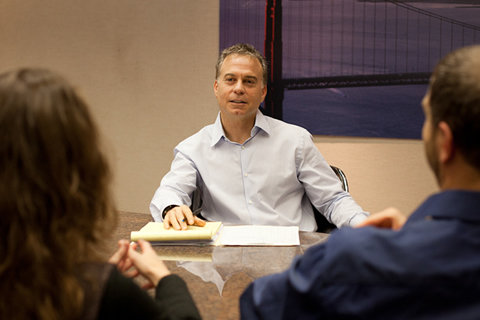
What is Mediation?
Mediation is a consensual, cooperative, confidential process in which a skilled neutral professional facilitates the reaching of a negotiated resolution to various kinds of disputes. The mediator assists the parties to resolve their dispute by helping them to work together, open and strengthen channels of communication, improve understanding, clarify positions, identify underlying interests, and explore possible solutions. The process is supportive and non-coercive—the mediator has no power to impose any particular result, and does not take a position about what is fair or right. Mediation empowers individuals and organizations because the power to decide what is fair and reasonable, and to creatively resolve the dispute, rests entirely with the parties, as opposed to a judge, jury or arbitrator. It is informal, inexpensive, and effective, and avoids the long delays, waste of resources, and emotional drain often associated with litigation. Virtually all kinds of disputes, whether a lawsuit has been filed or not, are suitable for mediation.
My Approach to Mediation

What sets me apart from other mediators is the way my dual training as a lawyer and psychologist allows me to help the parties get below the surface of their dispute to its root causes. This approach often makes for a quicker, more efficient process, because it cuts through the misunderstandings, recriminations and impasses that often abound when negotiation stays on the surface, where emotional and legal issues often remain hopelessly entangled. By gaining mutual understanding of each other’s deeper motivations and concerns, the parties gain an opportunity to address the human issues that often underlie the legal positions that are usually used to frame disputes. Whether a given conflict involves multi-billion dollar corporations or two divorcing spouses, there is almost always a human dimension driving the case that, unless identified and addressed, is likely to prolong the proceedings and can often lead to impasse. By focusing on understanding rather than winning, by welcoming rather than avoiding potentially difficult and challenging conversations, I help the parties to work with their real interests, concerns and motivations to creatively achieve a mutually satisfying resolution to their dispute. This more thorough and holistic approach also tends to lead to a more complete, meaningful, and more durable resolution because of its willingness to go to the heart of the matter, and address all facets of the dispute.
Advantages of Mediation
Mediation has many potential advantages over traditional dispute resolution methods, including:
- Permits rapid and often immediate closure on lingering disputes.
- Minimizes or eliminates the expense of lawyers and litigation.
- Empowers the parties by permitting them to co-create their own solution, rather than having one imposed by a lawyer, judge, jury, or arbitrator.
- Provides maximum flexibility and creativity.
- Minimizes the risk of damage to ongoing relationships and offers the opportunity to improve them.
- Reduces the bitterness that is often part of the adversarial litigation process and that frequently follows a winner-take-all courtroom verdict.
The Process of Mediation
Mediation is a flexible process that is tailored to the needs of the participants. Most mediations, however, generally follow the following format:
- A pre-mediation telephone conference in which necessary participants and information are identified, schedules discussed, and questions answered.
- An initial joint meeting between the parties and the mediator to clarify the procedures, answer further questions, exchange relevant information, address possibly unexpressed assumptions and expectations, and allow the parties to make a brief statement of the issues.
- In joint sessions, separate caucuses, or a combination of both, the mediator will assist the parties to understand their opponent’s point of view, will ask questions to help identify fundamental interests, focus the issues, and narrow the matters in dispute, and will offer guidance in moving toward resolution.
- To ensure closure, a written agreement settling the matter will be drawn up when the mediation has successfully resolved the dispute.